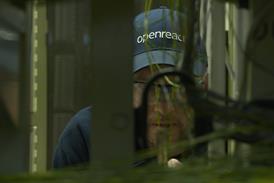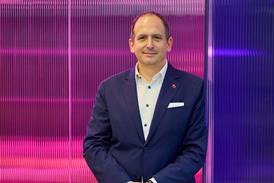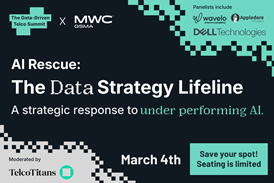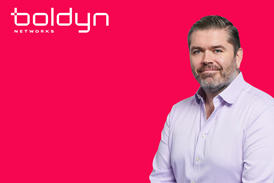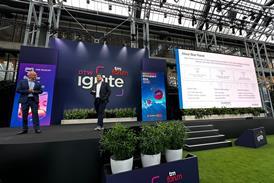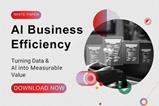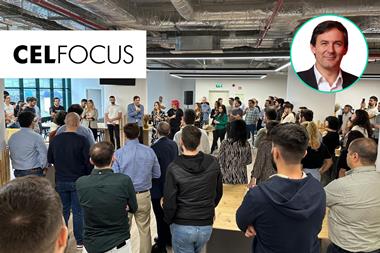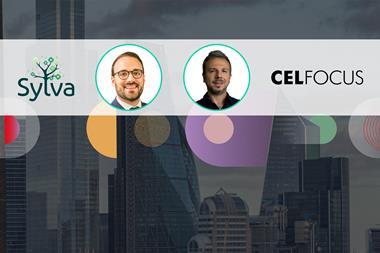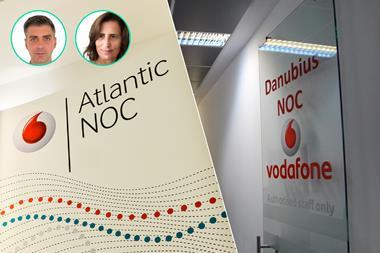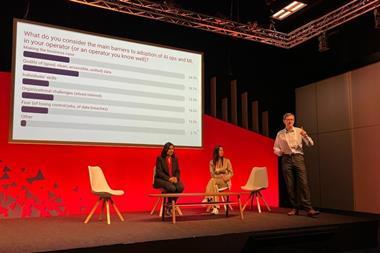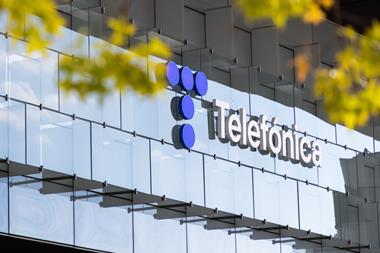- In an interview with Telefónicawatch, Paulo Trigo, CEO of European telco SI Celfocus, outlines a belief that operators must think more nimbly as they engage in strategic transformation programmes.
- IT implementation needs greater influence to enable digital transformation.
- Agile is more than a buzzword and must to be part of a business’s fabric.
- Smaller, targeted projects give faster and better return than big initiatives that risk obsolescence even before completion.
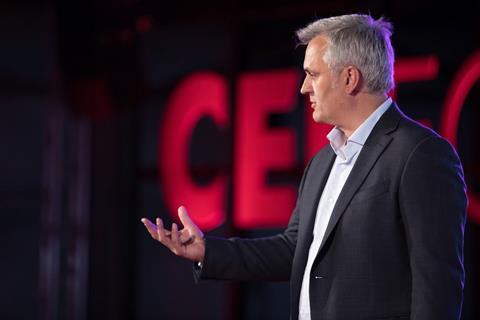
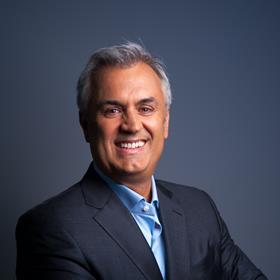
Describing his business as led “by engineers at heart”, Paulo Trigo, Chief Executive (CEO) of systems integrator (SI) Celfocus empathises that operators need to automate and become more data-driven, but he questions the perceived wisdom that this can be accomplished merely by emulating the hyperscaler playbook, and warns of dangers in adopting major projects without clear objectives and full understanding of their risks.
Trigo’s focus is on quantifiable goals and fast turnaround. While convinced that operators must automate and digitalise to remain relevant in the future, he is mindful of the confines of legacy experienced across the sector, and the challenges of putting digital theory into real-world practice.
Networks riding the data waves
In recent years, as Celfocus developed its portfolio, it became evident that the network side of operations support systems (OSS) was becoming increasingly IT- and data-based.
This creates a challenge that is essential for operators to address, but “in these areas, the amount of data generated is massive, and telcos struggle to deal with it”, according to Trigo. He considers that, when tackling this, operators have two opportunities to review data’s value and its potential to evolve their businesses.
Data can be used to improve network efficiency and quality of service, creating more effective systems through automation and additional functions such as self-healing. Trigo says these capabilities become critical with increasing complexity: “the old way of doing things, with network operations centres and a lot of engineers, is going to become unmanageable or too costly”.
The other opportunity is to capture value by getting to know more about customers. Trigo scopes a wealth of data that with anonymisation can be used to create a picture of customer behaviour and how services are being used, which can be leveraged to deliver more relevant offerings. The Celfocus chief notes opportunities in areas such as pay-TV platforms, as well as fundamental contributors to customer experience and satisfaction, such as Wi-Fi and connectivity performance. He evangelises that, “through data, you can be proactive in providing a better service to your clients”.
This application of data to identify customer value and achieve operational efficiency is expected to become even more relevant to operators as they develop vertical industry solutions that transcend their infrastructure.
“After building that infrastructure and enabling data automation, then you put AI on top of that, and you get amazing surprises — patterns you didn’t expect to see, fixes based on root causes that nobody knew about. But you can’t take shortcuts to reach that, and you have to build knowledge internally and with suppliers. ”
Trigo.
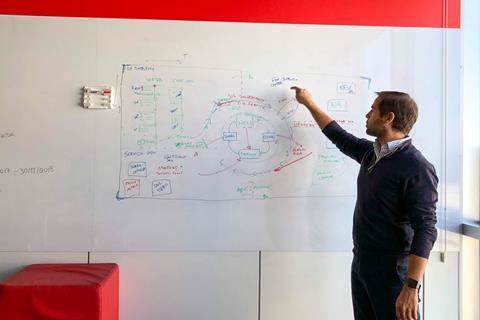
To play the hyperscalers’ game, you have to know the rules
Trigo’s assertion that digitalisation and the development of data-driven operations is critical for the telco future is tempered by pragmatism and an awareness of the extent of change that operators have to go through.
Transformation needs to be more than an aspiration to track the hyperscaler game-plan, and it requires deep understanding of the rules of the game — and having the right players. “To play any game, you need to know and understand the strategic components of that game”, Trigo notes, “and the companies that monetise data are hugely IT-driven across management; with depth of knowledge and expertise in leadership”. This is a marked difference from most operators today, where skills lie in network, infrastructure, and customer relationships.
Operators need to figure out how they can differentiate their services from other platform players, with Trigo flagging that connectivity is “not enough” as a unique selling point.
“All the consultants you want can push for you to play that platform game, but models need to change, and that’s going to mean taking tough calls and making tough decisions. Digital platforms need constant evolution, constant investment, constant complexity, and progress. You need to have IT-savvy leadership.”
Trigo.
IT culture trumps GSI platform strategy
While underlining the importance of operators adopting more IT-focused thinking, and turning to outsiders to help manage this transformation, Trigo also questions whether grand transformation projects backed by massive global SI contracts are an effective way forward. He points to earlier trends in the business support systems (BSS) space where ambitious overhauls promised results that proved to be a “mirage”. “Half of those BSS transformations projects didn’t provide sustained value”, he asserts, “and now they’re being entirely replaced”.
A key issue within telcos is that overly ambitious projects take so many years to complete, and are not flexible enough to adjust even to changes in the market that occur while they are being executed. “It’s a new project, it’s a new platform, it’s a new solution, but it’s already obsolete —so they have to start another new one. This creates a never-ending circle of frustration!”.
Trigo cites the Middle East as a region where, over the past decade, there was a wave of major GSI-led projects implemented with a cost-based focus “that fell flat”. Now, however, regional players are increasingly led by technology-focused management investing in tailored transformation programmes. With these operators “more tech savvy at C-level”, Trigo says there is now a better understanding of the decisions that need to be made, and the consequences associated with digitalisation. “It’s difficult for an operator, because the cost of IT skyrockets”, he acknowledges.
The alternative, in Trigo’s eyes, is a race-to the-bottom allied to the risk of procurement focused on “the same mess, just for less”.
Telefónica’s Middle East technology transfer
As Trigo highlights the building wave of technology-fluent management in the Middle East region, Telefónicawatch notes that Telefónica, directly and indirectly, has contributed significantly to this change. This is particularly visible in relation to leading regional player Etisalat, which is a prominent participant in Telefónica’s PartnerProgram since its 2011 launch, and has collaborated with the Spanish group in a range of areas, including network cybersecurity (Telefónicawatch, #88, #126, and passim). Telefónica has also seen a swathe of alumni join Middle East players over the years, including influential positions:
Salvador Anglada, Chief Business Officer at Etisalat over the past eight years, previously held a host of senior roles at Telefónica covering leadership of the networked IT services business, oversight of the Acens cloud hosting subsidiary, and CEO of O2 Czech Republic when it was part of the Group.
Carlos Domingo, formerly CEO of Business and Innovation at the erstwhile Telefónica Digital (and now a venture-backed entrepreneur), led business development at the Abu Dhabi-based group before a spell in a similar role at local rival du.
At du, Domingo was joined by José López, who parsed a strategic partnerships management role at Telefónica for a similar post at the Emirates challenger, and who is now Director for Open Innovation and Partnerships at Etisalat.
Meanwhile, Jose Antonio Rocha, a former IT Sales Director with Telefónica, is now Etisalat’s Senior Vice-President overseeing end-to-end service delivery for enterprise customers.
Celfocus’s perfect record anchored by deep discovery and iteration
Trigo believes that, considering the importance of communications providers’ role in society and the challenges involved with change, an emergent strategy through iterations is usually the best way to move forward.
“I believe in experimentation and proving a concept before scaling up. There can be a lot of discovery this way. If it’s one huge investment, trying to hit the bullseye, I think this is a mistake as the probability of failing is so great.”
Trigo.
Not only do grander projects come with a lot of execution risk, they entail changes to the business model, and can touch all parts of a business. “If you make a huge commitment and it fails, everything goes down with it”, he considers.
Celfocus aims to complete projects within nine to twelve months, taking a solution-focused approach that targets a specific need and reflects the scale of the operator client: “We don’t just go there and say ‘we can do whatever you want’; we focus on one thing, focus on one problem and one challenge to address”.
This intense methodology entails the project team first embracing the particular issue they are addressing to ensure a complete understanding. “There will be a lot of trial and error”, says Trigo, but this is considered investment by Celfocus to build its knowledge and expertise, and ultimately to add to its toolkit of components that are robust and reusable.
“We’ve never failed a project or abandoned the project, even if we had some hiccups, or took a financial hit. We’ve always delivered.”
Trigo.
Celfocus’s own innovation and synergy hothouse
While warning against mega-projects, Celfocus is far from conservative, with Trigo sharing a culture that channels curiosity to allow mastery of new capabilities, such as applying cognitive automation and AI to new applications and segments. “We always have something new in development. Some of those things fail and don’t go anywhere. Some we try, but they don’t sell, or they do sell but don’t go far. It happens and we take that as a normal thing. It’s part of the process, and I prefer that to people not trying”, he says.
This philosophy supports Celfocus’s strategy of developing a portfolio of replicable solutions that can be deployed in different environments. According to Trigo, these components support a wide range of applications. “We have a component around order management. It was always a very difficult problem to tackle, but we got very comfortable in dealing with that. Today, beyond order management, we use that component across IoT, in the digital space —anywhere you have transactions, and queuing, and decomposing of data”.
Agile is not just a buzzword, it’s a way of life…
Trigo is evidently a passionate proponent of the agile development methodology. He describes the approach as a powerful tool for change, and highlights the way it brings out leadership capabilities such as “purpose and autonomy” in people within his own business.
He estimates that around 40% of all work in Celfocus is now undertaken using an agile approach, with the company having invested heavily over the past three years in training and retooling to embed agile methodologies from the inception of all projects.
This has entailed reconfiguring roles and changing management structures to push decision-making responsibility down through the company, with demonstrable success.
“It was scary in the beginning, but guess what? We’re three or four years on: the company grew, even during a pandemic, helped by the autonomy of decision making.”
Trigo.
Nonetheless, agile is not a panacea, and Trigo addresses two pitfalls associated with growing enthusiasm for the approach.
Firstly, there are areas where agile development is not the right response, with more traditional development approaches still relevant for major architectural migrations. “I compare it to building a house: you can build the walls in an agile way, but you can’t build the foundations in an agile way”, Trigo explains.
Secondly, and perhaps more significantly for the telecoms sector, there is a lack of understanding of the commitment required in embracing IT-led transformation.
Trigo says there is a “massive effort” involved in adoption: “you don’t just say, ‘now we’re agile’ —you have to live it”. Not all organisations are ready for this level of dedication, and a tendency remains across the industry to latch on to agile as the latest trend. “It becomes a fad”, Trigo warned wryly, adding, “you’ll hear someone say ‘let’s run this meeting in agile mode’, or ‘let’s take a breakfast in agile’. I don’t know what that means…”.
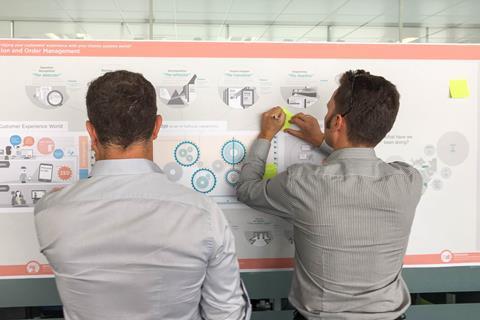
… and leadership needs to lead the new dance
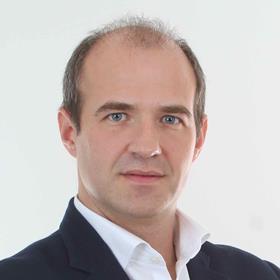
With business always prone to buzzwords, Trigo considers it important that operators develop a deep understanding of agile concepts to ensure they can collaborate effectively and efficiently with partners. “If you’re dancing the tango, and I’m dancing the cha-cha-cha, it won’t work; we have to have the same music, and we have to stay in the same movements, or we’re going to hurt ourselves”.
Celfocus has, at times, taken upon itself to become the dance teacher, making its own agile coaches available to clients to ensure that there is an understanding on the approach that will be taken to reach their collective goals.
For operators, however, getting into the rhythm is also something that has to start at the top, asserts Trigo.
“Agile adoption has to be led. It’s not something that management at C-level can say ‘we have to do it’, and then push down. The message has to be ‘we need to change and that will start with me’.”
Trigo.
|
Business Development Director: Bruno Manso Preto |
Celfocus delivers high-tech system integration services in the digital and cognitive space.
It was founded in 2000 and is part of Novabase Group, listed on the Euronext Lisbon Stock Exchange. As a technology company, it accelerates product and service innovation by promoting innovative digital capabilities and delivering business value in complex, mission-critical challenges.
With digital enabling large-scale innovation and disruption — in a context of increasing data complexity and growth — propositions are centred on three pillars focused on business efficiency and customer experience: digital transformation; cognitive; and network automation. |
Celfocus’s agile delivery methodology is aligned with industry best practices, tailored to reduce risk, and enables faster time to market. This gives clients access to a solid vision of what adds value and what does not, based on customer-centric architecture, data-driven approach and evolving reusable components that combine its own and other vendor’s technologies. From strategy through operations, Celfocus collaborates in areas such as actionable AI and cognitive automation, as well as digitalisation.
The systems integrator has a strong track record delivering digital transformation projects for tier-one clients in sophisticated sectors like telecommunications and financial services. Its EMEA-centric project footprint extends across 40 clients, including AXA, BNP, Generali, Safaricom, STC, Santander, and Vodafone. |
|
Group revenue: €120m (2020) |
||
|
Headcount: 1,500+ |
||
|
Headquarters: Lisbon, Portugal |
||
|
Hubs: Netherlands (Eindhoven), Portugal (Lisbon/ Oporto), UAE (Dubai), UK (Newbury) |
||
|
Website: www.celfocus.com |

Topics
- Automation
- BSS/OSS
- Carlos Domingo
- Celfocus (Novabase)
- Data science (analytics)
- DevOps (agile)
- Digitalisation
- Hyperscalers vertical (webscale)
- Industry Voice
- Innovation (R&D)
- Interview
- IT
- Jose Antonio Rocha
- José López
- Middle East
- Paulo Trigo
- Salvador Anglada
- Strategy & Change
- Suppliers & SCM
- System integration (SI)
- TelcoTitans Industry Content
- Transformation (change)
- Vendor Voice












